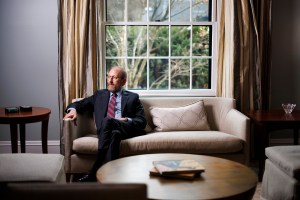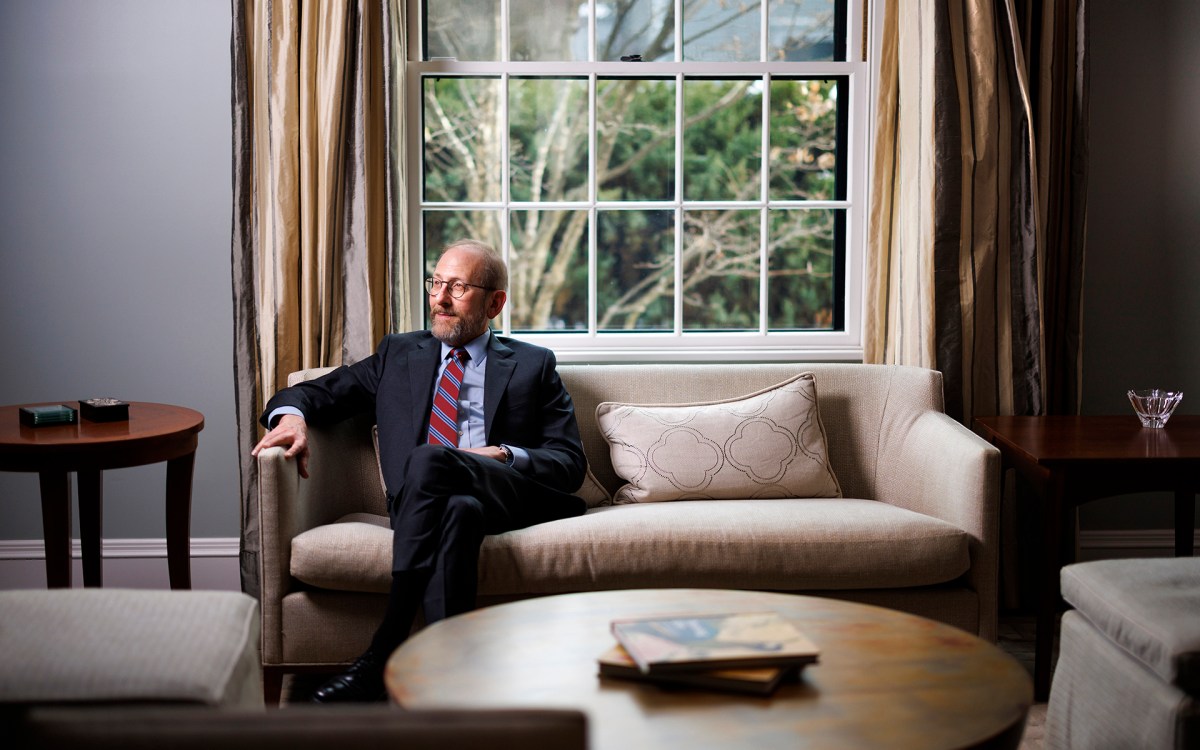Lessons learned from WorldTeach
Former PBH program reaches around globe

Ben Siracusa expects his garbage to get picked up. He expects the mail to be delivered and the lights to go on when he flips a switch. Like many Americans he expects his basic needs to be met – no muss, no fuss.
Siracusa didn’t realize how much of the American lifestyle he takes for granted until he spent the summer teaching English in a Costa Rican village on the shores of the Pacific Ocean.
“It was very different from anything I’ve ever done,” said Siracusa. “It helped show me I had expectations of things I never knew I had. In this town if they wanted a bridge over the river, they didn’t ask the government for it, they built it. If the electricity breaks, they have to fix it. There’s no garbage disposal, they either throw it on the ground or they burn it.”
Siracusa is one of an increasing number of Harvard undergraduates to spend the summer teaching in developing countries through a private nonprofit organization called WorldTeach.
WorldTeach got its start as a student-run organization in the Phillips Brooks House 15 years ago. Although it is sponsored by the Center for International Development (CID), WorldTeach is now an independent nonprofit organization. The center finances eight spots for Harvard students in WorldTeach’s 2-year-old summer undergraduate internship.
“CID is looking to spark an interest in international development as a career choice,” said WorldTeach Executive Director Robin Teater, a former Peace Corps volunteer who has headed the organization for two years.
In describing the program, inevitable comparisons are made to the Peace Corps – the U.S. government program that sends volunteers overseas to work in developing countries. That similarity is by design, Teater said. WorldTeach was intended to be an alternative to the Peace Corps, providing a similar experience but requiring less than the two-year commitment the Peace Corps asks.
Another difference with the Peace Corps is that while the Peace Corps has the financial backing of the U.S. government, WorldTeach relies on funds supplied by its volunteers – about $5,000 per trip for yearlong assignments and $4,000 for summer assignments – and gathered through other fundraising efforts to support both its volunteers and staff.
“The intention was to provide a viable alternative to the Peace Corps that didn’t require a two-year commitment, to welcome people with more general skills, and to allow non-U.S. citizens to participate,” Teater said.
WorldTeach currently operates in five countries: Costa Rica, Ecuador, Namibia, China, and South Africa. Programs in Costa Rica, Ecuador and China focus on teaching English, while the summer program in Namibia focuses on basic computer skills. The South African Program includes training local people in English and in natural history so they can become nature guides in the blossoming eco-tourism trade.
WorldTeach got its start in Kenya in 1985 when Michael Kremer, a newly minted Harvard graduate, was asked by officials in a village where he was staying to teach math and science at a new school. Kremer, today a Harvard economics professor, agreed and stayed a year.
“When I went to Kenya, I wasn’t planning to teach at all. I had studied development as an undergrad and thought it was important to actually spend some time in a village to get a better sense of what life was like in a developing country,” Kremer said. “I was called to the office of the head of the local government. I thought I was being thrown out of the country. Instead, he said they were starting a school and he wanted me to teach there.”
When Kremer’s year was up, he recruited another Harvard student, Dan Levy ’88, to replace him. Seeing the need for native English speaking teachers in Kenya, Kremer, Levy, and Sydney Rosen ’86 set up WorldTeach at the Phillips Brooks House.
WorldTeach eventually moved on to work in other countries as the need in Kenya declined.
Kremer said he knew from the start that a larger organization would be required to support the infrastructure needed to run WorldTeach, such as permanent staff in each country. So they made the organization open to volunteers from outside the Harvard community.
Though non-Harvard volunteers make up the bulk of WorldTeach’s volunteers today, Harvard students and graduates make up the single largest group, numbering about 100 of the 2,500 volunteers WorldTeach has placed since its creation.
In Siracusa’s case, he was sent to Ostional, a Costa Rican town of about 400 on the Pacific Ocean. He taught in a classroom that otherwise would have had only a television for an instructor. Because of a shortage of teachers and funding in Costa Rica, older students in remote areas are taught through videotaped lectures.
Siracusa said his presence was particularly valuable because the tapes, made by non-native English speakers, were of poor quality.
The experience has confirmed Siracusa’s interest in international development, he said, as well as providing valuable perspective on life in the United States.
“Nothing there runs on a schedule,” he said. “You realize a lot of the conveniences you live with you don’t really need.”
Charmaine Lee ’02, of Mather House, taught English in China last summer. Lee, who speaks Mandarin, taught adults at a paper factory in Yantai, a city of about 450,000 on the Yellow Sea.
“It was great. I think because I wasn’t with the other volunteers, I was able to make more local friends. And my Chinese improved considerably,” Lee said.
Lee, an economics concentrator, said she was interested in teaching in China because she’s from nearby Singapore. Among the most valuable experiences she had was getting to know the local people.
“I became very close to my immediate boss at the paper company,” Lee said. “We still keep in touch.”
Kremer said he’s pleased at how WorldTeach has developed. For the future, he said, he’d like to see more programs for undergraduates.
“I think it’s everything I would have wanted it to be,” Kremer said. “When we started we were making things up as we went along.”




